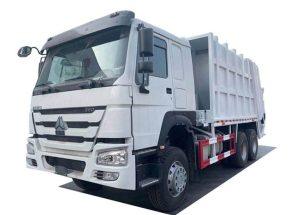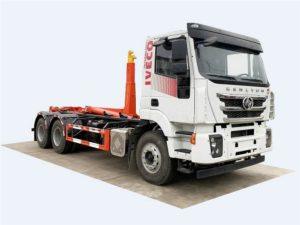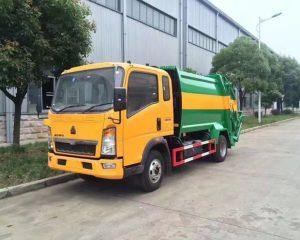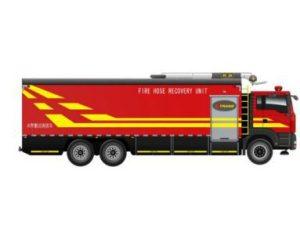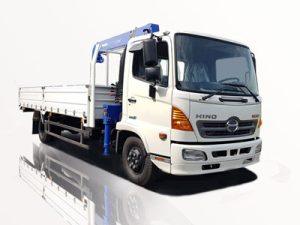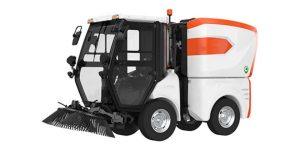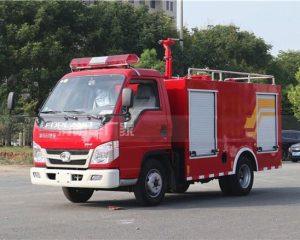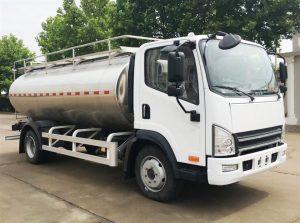Monday to Saturday - 8:00 -17:30
Fuel Tanker for Sale: A Comprehensive Guide
In the world of logistics and transportation, fuel tankers play a vital role in the supply chain. These specialized vehicles are essential for transporting various types of fuels, including diesel, gasoline, and more. If you are in the market for a fuel tanker, this article will provide you with detailed information about what to consider, where to find one, and how to make the best purchase decision. Whether you’re a business owner or an individual looking to invest, our guide covers everything you need to know about buying a fuel tanker for sale.
Understanding Fuel Tankers
What is a Fuel Tanker?
A fuel tanker is a specialized vehicle designed to transport liquid fuel. Typically mounted on a truck chassis, these tankers come in various sizes and configurations. Depending on the type of fuel being transported, a tanker may be equipped with multiple compartments for different fuels or additives.
Types of Fuel Tankers
There are several types of fuel tankers available on the market, each suited for specific needs:
- Single-Compartment Tankers: Used for transporting a single type of fuel, these are commonly used for gasoline or diesel.
- Multi-Compartment Tankers: Ideal for businesses that transport various fuel types, these tankers feature separate compartments.
- Vacuum Tankers: Designed for suction applications, these are used for transporting waste oil or residual fuels.
- Refrigerated Tankers: These are used for carrying temperature-sensitive fuels or liquids.
Key Considerations When Buying a Fuel Tanker
1. Determine Your Needs
Before purchasing a fuel tanker, assess your transportation requirements. This includes considering how much fuel you will transport, the distance, and the types of fuel you will be moving. Understanding your specific needs will help you decide on the right type and size of tanker.
2. Compliance with Regulations
Fuel transport is heavily regulated due to safety and environmental concerns. Ensure that the tanker you purchase complies with local and national regulations. Check for certifications and permits specific to your region.
3. New vs. Used Tankers
Deciding between new and used tankers can significantly impact your budget. New tankers come with warranties and the latest technology but at a higher cost. Conversely, used tankers are more affordable but may require more maintenance. Analyze the pros and cons of both options and choose what fits your needs best.
4. Budget Considerations
Your budget will ultimately determine the type of fuel tanker you can purchase. Along with the initial purchase price, factor in ongoing costs such as maintenance, insurance, and fuel expenses. It may be helpful to create a budget table to visualize all expected costs.
Where to Find Fuel Tankers for Sale
1. Online Marketplaces
Websites like Truck Paper and Equipment Trader are excellent resources for finding both new and used fuel tankers. You can filter by location, price, and type of tanker.
2. Local Dealerships
Many commercial vehicle dealerships sell fuel tankers. Establishing a relationship with a reputable dealer can provide you with insights, support, and potentially better financing options.
3. Industry Auctions
Auction houses often sell fleet vehicles, including fuel tankers, at competitive prices. Attend auctions in your area or browse online auction sites.
4. Classified Ads and Social Media
Don’t overlook classified ads, whether in newspapers or online platforms like Facebook Marketplace. These can often yield great deals on fuel tankers.
Financing Options for Fuel Tanker Purchase
1. Loans
Obtaining a commercial vehicle loan is a common way to finance a fuel tanker purchase. Different types of loans may be available based on your credit and financial situation.
2. Leasing
Leasing a fuel tanker can be a cost-effective solution, especially for businesses that need flexibility. Leasing typically requires less upfront capital and includes maintenance options.
3. Grants and Incentives
Some governments provide financial incentives or grants for startups or businesses transitioning to greener alternatives. Explore available programs that can assist in lowering the overall cost of your tanker.
Maintenance Considerations
1. Importance of Regular Maintenance
Regular maintenance is vital for ensuring the safety and efficiency of your fuel tanker. Neglecting maintenance can lead to significant issues that may result in costly repairs or accidents.
2. Routine Checks
Implement a schedule for routine maintenance checks, including:
- Inspecting hoses and fittings for leaks.
- Checking the integrity of the tank and containment structures.
- Testing all safety equipment.
3. Professional Services
Consider hiring professional maintenance services specialized in fuel tankers. They can provide thorough inspections, which might be more efficient and reliable than conducting them in-house.
Tips for Operating a Fuel Tanker Safely
1. Training Drivers
Properly trained drivers are essential for the safe operation of fuel tankers. They should be well-versed in safety protocols and emergency response strategies.
2. Equipment Safety Features
Ensure your tanker is equipped with essential safety features, such as:
- Emergency shutdown systems.
- Fire extinguishers and spill kits.
- Reflective tape for visibility.
3. Avoiding Overloading
Always adhere to the manufacturer’s guidelines regarding load limits. Overloading a tanker can lead to accidents and violations of transport regulations.
Environmental Considerations
1. Fuel Spill Prevention
Implement measures to prevent fuel spills, which can have harmful environmental impacts. Make sure operators are trained to handle and report spills effectively.
2. Eco-friendly Tankers
Consider investing in tankers designed for lower emissions and improved fuel efficiency. These vehicles not only reduce environmental impact but can also lower fuel costs over time.
Future Trends in Fuel Transportation
1. Electric and Hybrid Tankers
The transport industry is increasingly shifting toward electric and hybrid vehicles. As technology evolves, we can expect more fuel tankers adopting these greener solutions.
2. Automation and Telematics
Telematics technology has the potential to revolutionize fuel transportation, offering real-time data on vehicle performance, fuel consumption, and routing.
3. Alternative Fuels
With growing concerns over fossil fuels, alternative fuels and biofuels are increasingly entering the landscape. Fuel tankers will need to adapt to transport these newer fuel types safely.
Frequently Asked Questions
1. How much does a fuel tanker cost?
The cost of a fuel tanker can vary significantly based on size, age, and specifications. New tankers may range from $30,000 to over $100,000, while used options can be found for less.
2. What should I look for in a used fuel tanker?
When purchasing a used fuel tanker, check for wear and tear, maintenance history, and compliance with regulations. Additionally, verify that it has passed safety inspections.
3. How do I ensure my tanker is compliant with regulations?
Consult your local regulations and standards, which can vary by region. Ensure the tanker has the necessary certifications and is maintained according to required guidelines.
4. Can I lease a fuel tanker?
Yes, leasing is an option for obtaining a fuel tanker. This can provide flexibility and lower upfront costs compared to purchasing outright.
5. What are the benefits of multi-compartment tankers?
Multi-compartment tankers allow transportation of various fuel types simultaneously. This can increase efficiency for businesses needing to deliver multiple products.
6. Are there special insurance requirements for fuel tankers?
Yes, fuel tankers typically require specialized insurance due to the nature of transporting hazardous materials. Consult an insurance agent familiar with commercial transportation for guidance.


